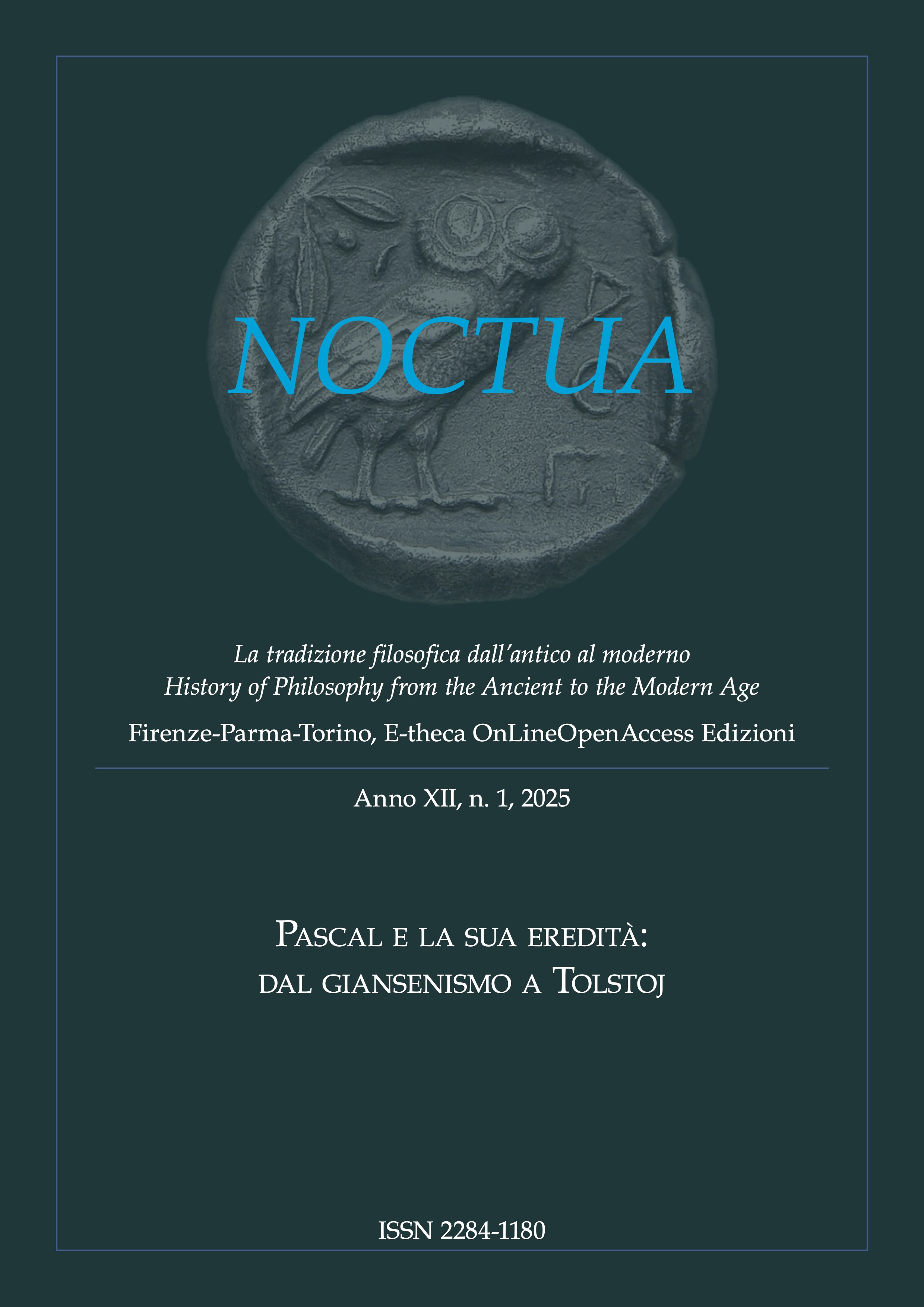Riflessioni sul tema “Il pensiero di Pascal in Russia”
DOI:
https://doi.org/10.14640/NoctuaXII2Parole chiave:
Blaise Pascal, Leo Tolstoy, Russian philosophy, French philosophy, religionAbstract
The article starts from the analysis of the interesting collection of essays by French and Russian scholars, published in Paris in 2020 with the title Lectures russes de Pascal. Hier et aujourd’hui. This title already reveals in itself a view on the character of the kinship of the Russian intellectuals examined with the thought of the French philosopher. ‘Readings’: therefore an approach directed more by personal fascinations than by a properly scientific interest. Exemplary can be considered the position of Tolstoy who saw Pascal’s greatest merit in moral integrity, while he clearly rejected the authority of any Church in matters of faith itself, and spoke unequivocally against the divinity of Christ. This is not to argue that the reference to Pascal by Russian philosophers and writers is superficial or occasional. The question is not so much about what is accepted and what is omitted from an author’s thought, but rather about the fact that what is accepted also acquires a different meaning in the new context. It is difficult to embrace the idea of a philosophia perennis. The lucid essentiality with which Pascal presents the contradictory nature of the human condition imposes itself, forcing to reflect even those who in some way try to ignore it. It is not, in fact, only a question of the common feeling of the precariousness of life, but of the problem that emerges from the awareness of this feeling. The question of the meaning of life and the value of thinking always remains the starting point of philosophical reflection, and it is precisely on this level that the encounter with Pascal takes place.
##submission.downloads##
Pubblicato
Fascicolo
Sezione
Licenza
Copyright (c) 2025 Angela Dioletta Siclari

TQuesto lavoro è fornito con la licenza Creative Commons Attribuzione 4.0 Internazionale.
Noctua pubblica contributi Diamond Open Access secondo i termini della licenza CC BY / Noctua publishes Diamond Open Access contributions under the terms of the CC BY license.






